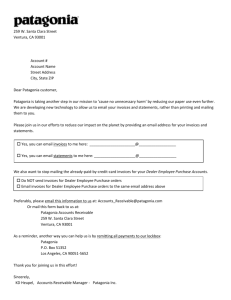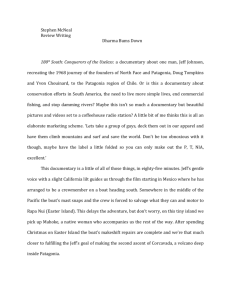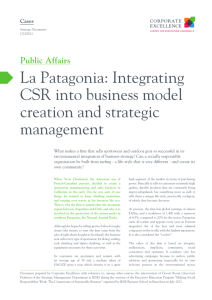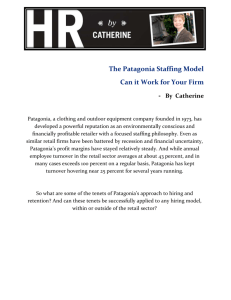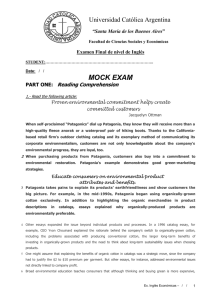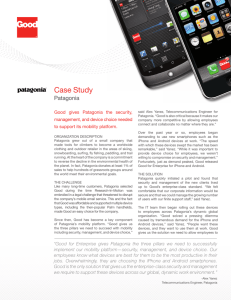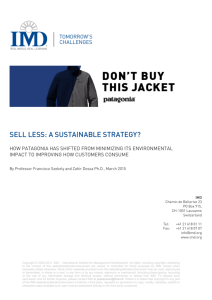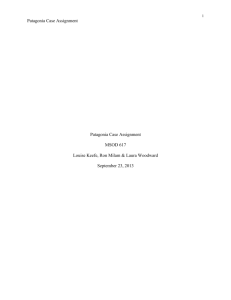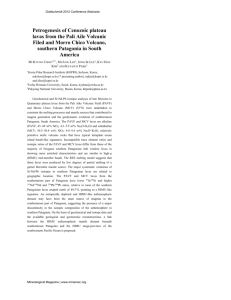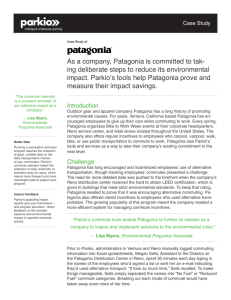Category: Obligations Relating to Non-State Actors Sub
advertisement
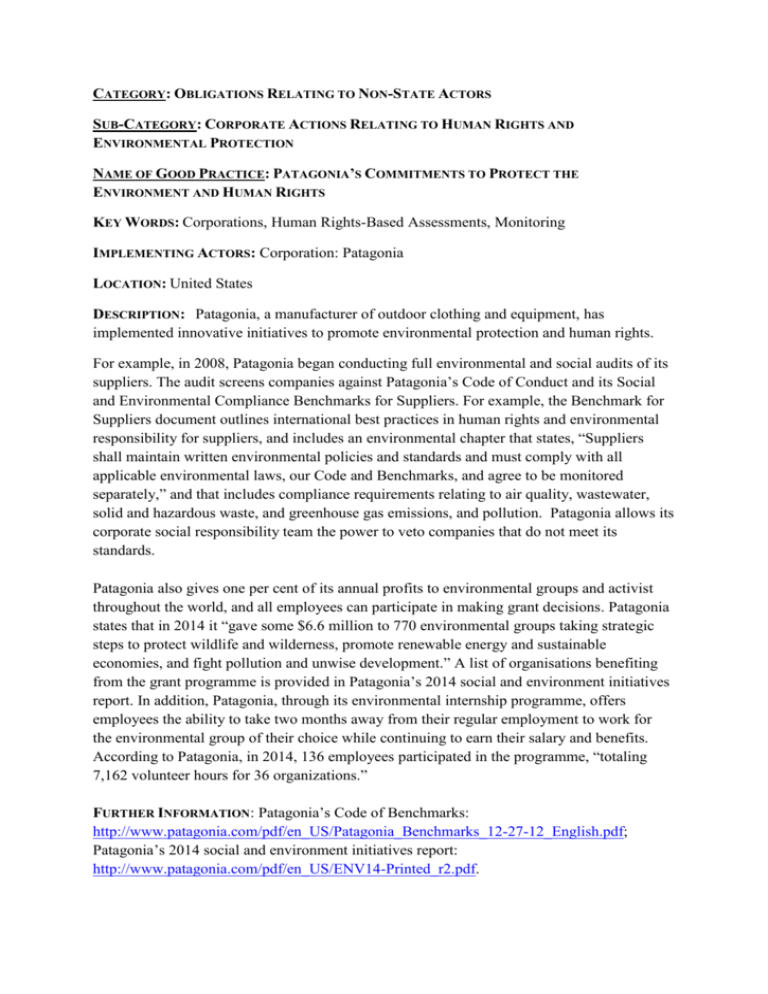
CATEGORY: OBLIGATIONS RELATING TO NON-STATE ACTORS SUB-CATEGORY: CORPORATE ACTIONS RELATING TO HUMAN RIGHTS AND ENVIRONMENTAL PROTECTION NAME OF GOOD PRACTICE: PATAGONIA’S COMMITMENTS TO PROTECT THE ENVIRONMENT AND HUMAN RIGHTS KEY WORDS: Corporations, Human Rights-Based Assessments, Monitoring IMPLEMENTING ACTORS: Corporation: Patagonia LOCATION: United States DESCRIPTION: Patagonia, a manufacturer of outdoor clothing and equipment, has implemented innovative initiatives to promote environmental protection and human rights. For example, in 2008, Patagonia began conducting full environmental and social audits of its suppliers. The audit screens companies against Patagonia’s Code of Conduct and its Social and Environmental Compliance Benchmarks for Suppliers. For example, the Benchmark for Suppliers document outlines international best practices in human rights and environmental responsibility for suppliers, and includes an environmental chapter that states, “Suppliers shall maintain written environmental policies and standards and must comply with all applicable environmental laws, our Code and Benchmarks, and agree to be monitored separately,” and that includes compliance requirements relating to air quality, wastewater, solid and hazardous waste, and greenhouse gas emissions, and pollution. Patagonia allows its corporate social responsibility team the power to veto companies that do not meet its standards. Patagonia also gives one per cent of its annual profits to environmental groups and activist throughout the world, and all employees can participate in making grant decisions. Patagonia states that in 2014 it “gave some $6.6 million to 770 environmental groups taking strategic steps to protect wildlife and wilderness, promote renewable energy and sustainable economies, and fight pollution and unwise development.” A list of organisations benefiting from the grant programme is provided in Patagonia’s 2014 social and environment initiatives report. In addition, Patagonia, through its environmental internship programme, offers employees the ability to take two months away from their regular employment to work for the environmental group of their choice while continuing to earn their salary and benefits. According to Patagonia, in 2014, 136 employees participated in the programme, “totaling 7,162 volunteer hours for 36 organizations.” FURTHER INFORMATION: Patagonia’s Code of Benchmarks: http://www.patagonia.com/pdf/en_US/Patagonia_Benchmarks_12-27-12_English.pdf; Patagonia’s 2014 social and environment initiatives report: http://www.patagonia.com/pdf/en_US/ENV14-Printed_r2.pdf.

